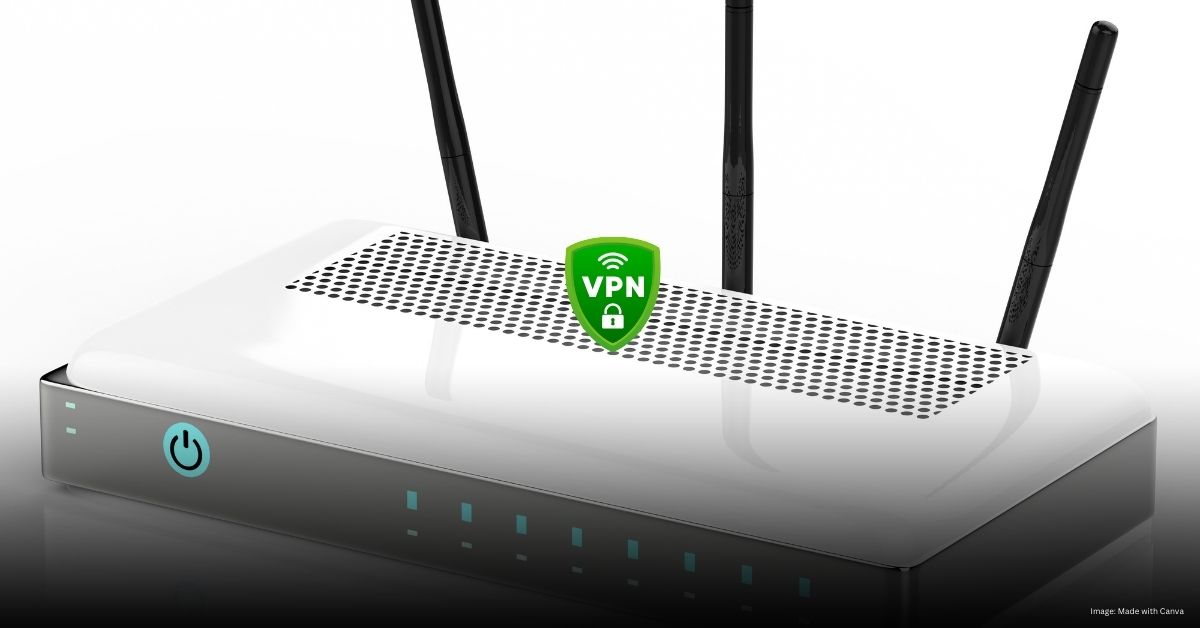Are you concerned about online privacy? Or maybe you want to access restricted content on all your devices? Installing a VPN on your router can solve these problems. Instead of setting up a VPN on each device, installing it on your router protects your entire network. But how do you do it? This guide will walk you through the process, ensuring that your internet activities remain private and secure.
What is a VPN and How Does it Work?
A Virtual Private Network (VPN) creates a secure connection between your device and the internet. It hides your IP address, making it harder for hackers or anyone else to track your online activities. When installed on a router, a VPN protects every device connected to your network.
Why Install a VPN on Your Router?
Installing a VPN on your router has multiple benefits. It secures your entire home network, allowing all connected devices to enjoy the privacy and security of a VPN. Plus, it eliminates the need to install a VPN on each device individually.
Continuous Protection
One significant advantage of having a VPN on your router is continuous protection. As long as your router is on, your devices are protected without needing to connect manually each time.
Access Global Content on All Devices
A VPN on your router lets you access geo-restricted content on all your devices. Whether it’s streaming services or websites restricted to specific countries, a VPN opens the door to a world of content.
How to Choose the Right VPN for Your Router
Not all VPNs are compatible with routers, so it’s crucial to choose one that works with your device. Look for a VPN service that supports OpenVPN, has strong encryption, and offers easy-to-follow installation guides.
Check Router Compatibility
Before subscribing to a VPN service, ensure that your router is compatible. Some routers support VPNs out of the box, while others may need firmware updates or specific configurations.
Speed and Security
Choose a VPN that offers a good balance between speed and security. High encryption levels can slow down your connection, so look for a VPN that optimizes performance without compromising security.
Steps to Install VPN on Your Router
Installing a VPN on your router may seem challenging, but it’s straightforward if you follow these steps. Remember to follow the instructions specific to your VPN provider and router model.
Step 1: Log in to Your Router
Start by accessing your router’s admin panel. You can do this by typing your router’s IP address into your browser’s address bar. Log in using your username and password.
Step 2: Find the VPN Setup Section
Once inside the admin panel, navigate to the VPN setup section. This might be under “Advanced Settings” or “Network Settings,” depending on your router.
Step 3: Enter VPN Details
Enter the VPN settings provided by your VPN service. This usually includes the server address, your username, and password. Some VPNs may require you to upload configuration files.
Step 4: Save and Test Your Connection
After entering all the necessary details, save your settings and reboot your router. Once it’s back online, test the connection to ensure that the VPN is working correctly.
Troubleshooting Common Issues
If you run into issues during installation, don’t worry. Most problems are easy to fix. Check your router’s compatibility, ensure you’ve entered the correct VPN details, or contact your VPN provider for support.
Router Not Connecting to VPN
If your router fails to connect to the VPN, double-check the server address and your login credentials. Ensure your router’s firmware is up to date and that your internet connection is stable.
Slow Internet Speed
A VPN can slow down your internet speed due to the encryption process. If this happens, try connecting to a server closer to your location or upgrade to a higher-speed VPN plan.
Conclusion
Installing a VPN on your router is a powerful way to secure your entire network. It offers continuous protection and access to global content, all while ensuring your privacy. Though it may seem complex, following the steps outlined in this guide makes the process manageable. Take control of your online security today by installing a VPN on your router.
FAQs
Q1: Can I install a VPN on any router?
Not all routers support VPNs. Check your router’s manual or the manufacturer’s website to see if your model is compatible.
Q2: Will installing a VPN on my router slow down my internet?
A VPN can slow down your internet speed due to encryption. However, choosing a VPN with fast servers and optimizing settings can minimize this effect.
Q3: Can I switch off the VPN on my router for specific devices?
Some advanced routers allow you to create exceptions for certain devices, but this depends on your router’s capabilities and the VPN software used.
Q4: Do I need a special router to use a VPN?
While some routers are specifically designed for VPNs, many standard routers can also be configured to use a VPN with the right firmware and settings.
Q5: What happens if the VPN disconnects?
If the VPN disconnects, your internet connection will usually revert to your regular ISP connection. Some routers allow you to set up a kill switch to prevent this.


